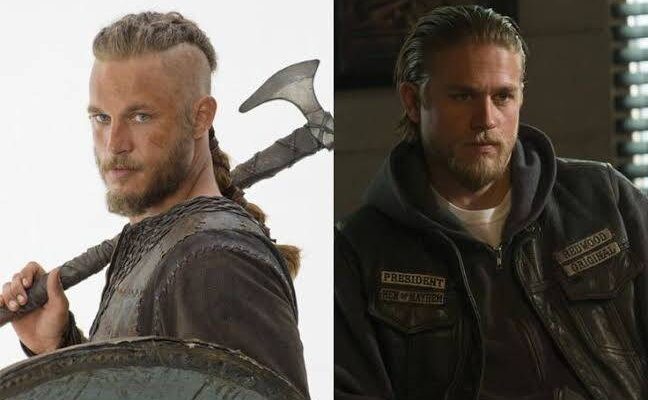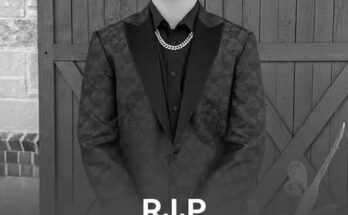Charlie Hunnam and Travis Fimmel stand as two of the most intriguing figures in the evolution of television stardom in the 21st century. Though they hail from different parts of the world—Hunnam from Newcastle, England, and Fimmel from Echuca, Australia—their trajectories into the upper echelons of entertainment share uncanny parallels. Both men began as unconventional picks for stardom, known more initially for their looks than their acting chops, only to grow into complex performers who redefined the kind of characters that could lead a hit television series. In doing so, they each helped usher in a new era of TV antiheroes and turned gritty, character-driven dramas into global cultural phenomena.
Charlie Hunnam’s breakout came with Sons of Anarchy, the FX crime drama that followed an outlaw motorcycle club in California. Cast as Jackson “Jax” Teller, Hunnam was handed a role that could have easily fallen into cliché: the brooding, violent, yet noble son of a fallen leader. But Hunnam brought nuance and emotional complexity to Jax, allowing the character to evolve organically over the show’s seven-season run. Hunnam’s performance was raw and charismatic, but what made him compelling was the emotional weight he brought to Jax’s internal conflict. His British background was practically invisible behind the American accent and the deeply immersive performance. Fans watched Jax grow from a reluctant heir to a full-fledged, morally tormented leader, transforming what could’ve been just another biker drama into a Shakespearean saga about loyalty, legacy, and loss.
Travis Fimmel’s rise to fame was similarly transformative. His early career included a stint as a Calvin Klein model, and his leap into acting initially seemed uncertain. But then came Vikings, the History Channel’s ambitious foray into scripted drama. As Ragnar Lothbrok, Fimmel stunned audiences with a portrayal that was part warrior, part philosopher, and wholly unpredictable. Much like Hunnam, Fimmel redefined what it meant to lead a drama series—not by dominating every scene through bravado, but by offering a deeply idiosyncratic, layered performance that balanced madness with insight. Ragnar’s motivations were often opaque, his actions mercurial, yet always grounded in a kind of primal logic that made him impossible to ignore.
What made both Sons of Anarchy and Vikings revolutionary in their own right was the way they placed morally gray protagonists at the center of their narratives. Neither Jax nor Ragnar could be described as “good guys,” yet audiences found themselves rooting for them. This was no small feat, and much of the credit goes to Hunnam and Fimmel’s performances. They didn’t try to sanitize their characters’ darker instincts but leaned into them, making their complexity a strength rather than a liability. In the age of prestige television, where complexity and ambiguity are often prized over straightforward heroism, both actors were perfectly suited to the cultural moment.
Another key point in their comparative rise is how both shows transcended the traditional boundaries of their genres. Sons of Anarchy might have been described as a crime drama, but it dealt with themes of political power, family, and existential struggle in a way that echoed classic tragedies. Similarly, Vikings was ostensibly a historical epic, but Fimmel’s Ragnar made it something more mythological, more intimate. There was a poetic sensibility to both performances, a recognition that these men were not just characters in a plot, but avatars for broader ideas—masculinity in crisis, the weight of legacy, the burdens of leadership.
The shows also succeeded in large part because of the cultural authenticity and creative risks taken by their stars. Hunnam famously immersed himself in motorcycle culture, riding with real clubs to understand the ethos of the world he was entering. He developed a relationship with real-life outlaw bikers and tried to channel their presence into Jax’s demeanor. Fimmel, on the other hand, brought a spontaneous and often improvisational style to Ragnar. He reportedly would alter dialogue or add facial tics and unpredictable gestures, forcing even his co-stars to stay on their toes. These risks could have backfired, but instead they made their performances feel alive and unpredictable.
Beyond their individual series, the impact of Hunnam and Fimmel can be seen in how television began to pivot around male leads who were complicated and tragic rather than aspirational. They opened the door for a generation of characters who were not easily boxed in. Moreover, they brought a cinematic quality to their performances, helping to blur the lines between television and film acting. That they managed to do so while working on cable networks—FX and History, respectively—rather than the more critically lauded HBO or AMC, is a testament to their talent and magnetism.
Interestingly, both actors have had somewhat complicated relationships with fame. Hunnam, though widely praised for his role in Sons of Anarchy, has often shied away from the Hollywood spotlight. He’s spoken about the pressure of leading such an intense series and the toll it took on him emotionally and physically. He has since been selective with roles, gravitating toward parts that allow him creative expression rather than sheer visibility. Fimmel is even more reclusive, known for eschewing traditional press tours and rarely discussing his personal life. His post-Vikings roles have leaned toward independent films and offbeat projects, suggesting that he values artistic challenge over mainstream appeal.
Despite their retreat from the spotlight, both actors have retained loyal fanbases. This is not merely because of their physical appeal, though that is often a starting point for media interest, but because of the authenticity they bring to their roles. Neither man seems interested in playing the Hollywood game, and in a media landscape that often rewards performative celebrity over substantive artistry, this makes them stand out even more.
Their influence can also be measured by the actors and shows that followed. Series like Peaky Blinders, Yellowstone, and The Last Kingdom owe something to the path carved by Sons of Anarchy and Vikings. These shows center morally ambiguous men navigating chaotic worlds with brute strength, loyalty, and a brooding sense of purpose. It’s no coincidence that Tom Hardy’s Alfie Solomons or Cillian Murphy’s Tommy Shelby could just as easily ride beside Jax Teller or raid with Ragnar Lothbrok. The antihero archetype had existed long before Hunnam and Fimmel, but their specific blend of vulnerability and menace helped refine and popularize it for a new generation.
Additionally, both shows garnered critical and commercial success without needing to be overtly commercial themselves. Sons of Anarchy maintained high viewership throughout its run and remains one of FX’s most successful series, while Vikings helped solidify the History Channel as a legitimate player in the scripted drama space. They weren’t traditional prestige TV in the vein of The Sopranos or Breaking Bad, but they resonated with global audiences in a more populist, grassroots way.
Charlie Hunnam and Travis Fimmel represent a unique breed of actor—ones who straddle the line between television and film, art and entertainment, charisma and subtlety. They both emerged from seemingly superficial beginnings and evolved into actors capable of carrying sprawling, emotionally rich narratives on their shoulders. Their work demonstrated that TV stardom need not be flashy to be profound, and that the most compelling characters are often the ones most at war with themselves.
In a media world increasingly dominated by spectacle and superficiality, Hunnam and Fimmel offered something deeper. They didn’t just play roles; they inhabited them, bringing authenticity, danger, and emotional truth to characters who might otherwise have been archetypes. In doing so, they didn’t just revolutionize TV stardom—they redefined what it means to be a star in an age where character, not just charisma, reigns supreme.



